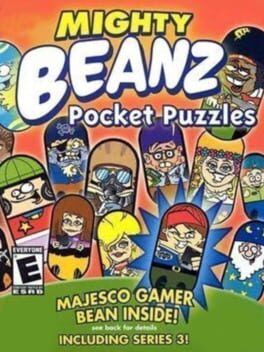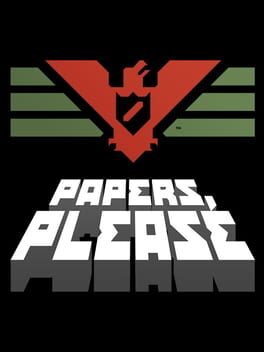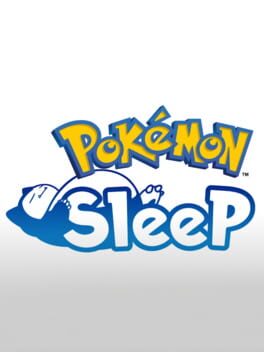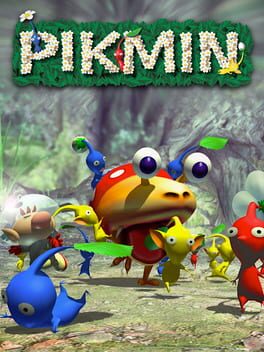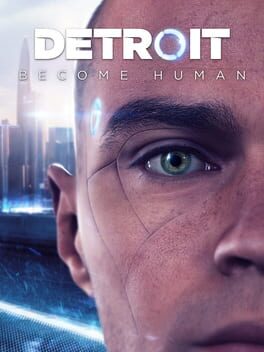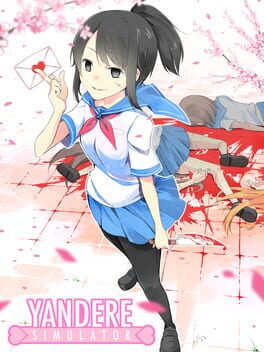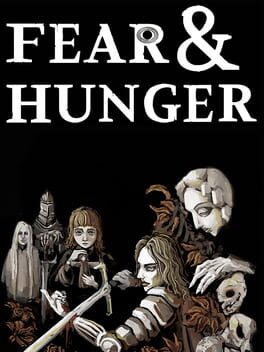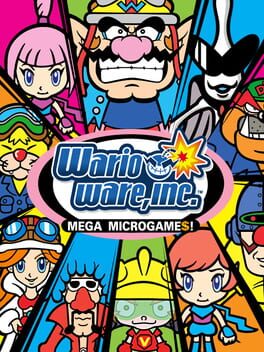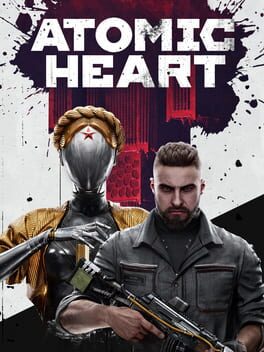middleman6251
468 Reviews liked by middleman6251
Alan Wake II
2023
Is it too late to change my game of the year?
I won’t be the first person to compare the two, but I find that the experience my time with Alan Wake II mirrors most closely is, of course, my time watching Twin Peaks: The Return. I know they’re apples and oranges, as Alan Wake II being a mixed-medium survival horror detective videogame makes it a different beast altogether, but the way I experienced both was similar: I had a good ol’ blissful, sacrosanct binge which commanded my full attention and which I could not stop thinking about.
I went into both armed only with my knowledge of the previous entries and the works of their creators… and that musical number at the game awards.
In short, Alan Wake II is operating on such unprecedented levels of Conmancore that I feel overwhelmed. I’ll have more specific and properly composed thoughts on the adventures of Owlan Wake and Saga Andeerson once I eventually play through The Final Draft.
Yes I was trying to figure out how to shoehorn in that symbolic pun but kinda gave up.
I won’t be the first person to compare the two, but I find that the experience my time with Alan Wake II mirrors most closely is, of course, my time watching Twin Peaks: The Return. I know they’re apples and oranges, as Alan Wake II being a mixed-medium survival horror detective videogame makes it a different beast altogether, but the way I experienced both was similar: I had a good ol’ blissful, sacrosanct binge which commanded my full attention and which I could not stop thinking about.
I went into both armed only with my knowledge of the previous entries and the works of their creators… and that musical number at the game awards.
In short, Alan Wake II is operating on such unprecedented levels of Conmancore that I feel overwhelmed. I’ll have more specific and properly composed thoughts on the adventures of Owlan Wake and Saga Andeerson once I eventually play through The Final Draft.
Yes I was trying to figure out how to shoehorn in that symbolic pun but kinda gave up.
Papers, Please
2013
Pokémon Sleep
2023
Pikmin
2001
Pikmin
2001
The Legend of Zelda
1986
Surprisingly enjoyed playing this a lot, as someone who just expected this to be really dated. It's the kind of game that got people writing down notes and drawing maps, which I always appreciate. I will admit I did occasionally use a walkthrough for the more obscure stuff but still, I'm really glad I went back to give this a shot.
The Legend of Zelda
1986
The first time I played The Legend of Zelda was in 2003, as part of The Legend of Zelda: Collector's Edition for the Nintendo GameCube. The disc came as a bonus for re-upping my subscription to the magazine Nintendo Power, and it included four of the five mainline games in the series released to that point (excluding only A Link to the Past). Playing the original NES game, for the teenage version of myself, was a joyless experience, a perceived chore undertaken out of a felt obligation to experience the first entry in what was already, less than twenty years after its inception, a storied franchise.
Intent on completing the game as quickly as possible, I printed an FAQ with explicit instructions on how to reach every point of interest in the game's overworld. Perhaps I had internalized the words of the old man who bequeathes Link his sword in the game's opening minutes: "It's dangerous to go alone!" So intimidated was I by the prospect of facing this game with only my own wits (and reflexes) that I had prejudged it to be impossible without the guidance of those who went before. Perhaps inevitably, I abandoned this attempted playthrough after only a couple of hours. I had psyched myself out of experiencing what later games would underscore as the franchise's most elemental strength: the joy of exploration.
Playing the game again in 2021, this time via the Nintendo Switch's official NES emulator, I approached it as I had learned to approach 2017's Breath of the Wild: as a sandbox dotted with treasures, each one locked behind a puzzle. I swept back and forth across the game's overworld looking for them, impressed with the world's expansiveness but also its coherence. Here, fully formed, were the topographical features of so many games in the series that followed: twisting forests, rife with monsters; crags, cliffs, and rockslides to the north; beaches and deserts, bleached white by the sun.
Unwittingly, I completed the first three dungeons out of sequence. When I discovered this, I was even more impressed with the game for its flexibility: truly, this was an adventure of my own making. In fact, I discovered most of the dungeons without looking for them. More than once, I made it deep inside before discovering that I was missing an important item likely to be found in another dungeon; I would need to leave and restart the dungeon later, when I had the proper tools. The first few times this happened, I didn't mind. But as situations like these became more frequent, I finally turned to an online guide simply to tell me which previously discovered dungeon I was meant to clear next.
By about the sixth dungeon, the fundamental experience of the game had changed. Having initially explored the map on my own but with the Internet now serving as my compass, the game had become primarily a dungeon crawler. The overworld went by in a blur as I raced from one dungeon to the next, with occasional detours to explode a rock or burn a tree or buy potions from an old woman. These were secrets I never would have uncovered on my own, and so I didn't mind using the guide to find them. The dungeons, at least, I was able to finish unaided. Did I clear them optimally? Definitely not. In some cases I had to retread my steps multiple times in search of a hidden doorway or a particular item I was missing. But even so, the self-contained nature of the dungeons made each one conquerable in no more than 30 to 40 minutes. That is, until the final dungeon.
At this point, though, it's worth mentioning that at about this point in my playthrough, I came across Backloggd user chump's insightful review of The Legend of Zelda: Twilight Princess. Chump writes that the Zelda franchise, by and large, "isn't a dungeon crawler, it's an overworld crawler. Don't get me wrong, Zelda dungeons can be fun or even highlights of the game, but the focus has been on the overworld since the very beginning of the series."
This sentiment gave me pause. If it were true, and given that I'd made the conscious decision to stop experiencing The Legend of Zelda as an overworld crawler and instead as a dungeon crawler, then either I was playing the game incorrectly or I was fundamentally misapprehending the game that I was playing. Was I simply approaching the game with the same cynicism that I had as a teenager -- except that, for whatever reason, I was enjoying myself this time?
It seemed worth taking a step back to consider the essential nature of these concepts. I thought of arguably the original dungeon crawler: Dungeons & Dragons, the tabletop game that in its earliest incarnations actively eschewed so-called "roleplaying" in favor of clearing out monsters from dungeons and hoarding their loot.
On the first page of the original Dungeons & Dragons three-volume boxed set (published in 1974), creator Gary Gygax claims that while "it is relatively simple to set up a fantasy campaign," the bulk of the campaign referee's preparation will necessarily be devoted to "laying out the maps of his 'dungeons' and upper terrain." The game's initial rulebooks and supplements, even the ones purportedly devoted to fleshing out alternative campaign settings, are mostly concerned with the ways game organizers (called Dungeon Masters, starting with D&D's second supplement in 1975) might draw out the gameplay and/or make the players' goals more difficult to achieve. The books advocate for nefarious labyrinths escapable only through false walls; doors that lock behind the players until a certain number of enemies have been defeated; traps that send players to the beginning of the dungeon, effectively resetting their progress. In other words, the aim of the Dungeon Master essentially was to troll the other players.
Had The Legend of Zelda released a decade earlier, its later dungeons would have made Gygax and his collaborators proud. Even once you've obtained a map, the final dungeon is truly aggravating. Upon the game's release in 1986, it would have been completable only by means of graph paper, pencil, and a whole lot of patience. This was the one dungeon for which I followed an online guide, and even so it was by far the longest and most difficult to complete. The number of underhanded traps and overpowered enemies the player must surmount simply to advance from one room to the next is absolutely punishing. It's pure dungeon-crawling, in keeping with the design philosophy established by Original D&D.
In that sense, I think it's fair to characterize The Legend of Zelda as at least equal parts dungeon and overworld crawler -- if not skewing toward the former, especially in the late game. Perhaps that became less true for the franchise over time, but part of apprehending this first game is to understand that its oft-labeled "obtuseness" emerges from a philosophy shared by game designers and players alike, one in which testing boundaries (the game's, the player's) is intrinsic to the very idea of "play."
Yes, it's dangerous to go alone. But Zelda has never encouraged going it alone, not really. It has always understood its relationship with the player in terms of its relationships with other players, as part of a network that, for decades now, has helped its constituents come to grips with this exhilarating, mysterious, challenging game and its myriad descendants. Community is Zelda's strength, not its secret shame. The Legend of Zelda does not tell the player much, not explicitly, but its most famous line is followed immediately by the game's endorsement of this truth:
"It's dangerous to go alone! Take this."
Intent on completing the game as quickly as possible, I printed an FAQ with explicit instructions on how to reach every point of interest in the game's overworld. Perhaps I had internalized the words of the old man who bequeathes Link his sword in the game's opening minutes: "It's dangerous to go alone!" So intimidated was I by the prospect of facing this game with only my own wits (and reflexes) that I had prejudged it to be impossible without the guidance of those who went before. Perhaps inevitably, I abandoned this attempted playthrough after only a couple of hours. I had psyched myself out of experiencing what later games would underscore as the franchise's most elemental strength: the joy of exploration.
Playing the game again in 2021, this time via the Nintendo Switch's official NES emulator, I approached it as I had learned to approach 2017's Breath of the Wild: as a sandbox dotted with treasures, each one locked behind a puzzle. I swept back and forth across the game's overworld looking for them, impressed with the world's expansiveness but also its coherence. Here, fully formed, were the topographical features of so many games in the series that followed: twisting forests, rife with monsters; crags, cliffs, and rockslides to the north; beaches and deserts, bleached white by the sun.
Unwittingly, I completed the first three dungeons out of sequence. When I discovered this, I was even more impressed with the game for its flexibility: truly, this was an adventure of my own making. In fact, I discovered most of the dungeons without looking for them. More than once, I made it deep inside before discovering that I was missing an important item likely to be found in another dungeon; I would need to leave and restart the dungeon later, when I had the proper tools. The first few times this happened, I didn't mind. But as situations like these became more frequent, I finally turned to an online guide simply to tell me which previously discovered dungeon I was meant to clear next.
By about the sixth dungeon, the fundamental experience of the game had changed. Having initially explored the map on my own but with the Internet now serving as my compass, the game had become primarily a dungeon crawler. The overworld went by in a blur as I raced from one dungeon to the next, with occasional detours to explode a rock or burn a tree or buy potions from an old woman. These were secrets I never would have uncovered on my own, and so I didn't mind using the guide to find them. The dungeons, at least, I was able to finish unaided. Did I clear them optimally? Definitely not. In some cases I had to retread my steps multiple times in search of a hidden doorway or a particular item I was missing. But even so, the self-contained nature of the dungeons made each one conquerable in no more than 30 to 40 minutes. That is, until the final dungeon.
At this point, though, it's worth mentioning that at about this point in my playthrough, I came across Backloggd user chump's insightful review of The Legend of Zelda: Twilight Princess. Chump writes that the Zelda franchise, by and large, "isn't a dungeon crawler, it's an overworld crawler. Don't get me wrong, Zelda dungeons can be fun or even highlights of the game, but the focus has been on the overworld since the very beginning of the series."
This sentiment gave me pause. If it were true, and given that I'd made the conscious decision to stop experiencing The Legend of Zelda as an overworld crawler and instead as a dungeon crawler, then either I was playing the game incorrectly or I was fundamentally misapprehending the game that I was playing. Was I simply approaching the game with the same cynicism that I had as a teenager -- except that, for whatever reason, I was enjoying myself this time?
It seemed worth taking a step back to consider the essential nature of these concepts. I thought of arguably the original dungeon crawler: Dungeons & Dragons, the tabletop game that in its earliest incarnations actively eschewed so-called "roleplaying" in favor of clearing out monsters from dungeons and hoarding their loot.
On the first page of the original Dungeons & Dragons three-volume boxed set (published in 1974), creator Gary Gygax claims that while "it is relatively simple to set up a fantasy campaign," the bulk of the campaign referee's preparation will necessarily be devoted to "laying out the maps of his 'dungeons' and upper terrain." The game's initial rulebooks and supplements, even the ones purportedly devoted to fleshing out alternative campaign settings, are mostly concerned with the ways game organizers (called Dungeon Masters, starting with D&D's second supplement in 1975) might draw out the gameplay and/or make the players' goals more difficult to achieve. The books advocate for nefarious labyrinths escapable only through false walls; doors that lock behind the players until a certain number of enemies have been defeated; traps that send players to the beginning of the dungeon, effectively resetting their progress. In other words, the aim of the Dungeon Master essentially was to troll the other players.
Had The Legend of Zelda released a decade earlier, its later dungeons would have made Gygax and his collaborators proud. Even once you've obtained a map, the final dungeon is truly aggravating. Upon the game's release in 1986, it would have been completable only by means of graph paper, pencil, and a whole lot of patience. This was the one dungeon for which I followed an online guide, and even so it was by far the longest and most difficult to complete. The number of underhanded traps and overpowered enemies the player must surmount simply to advance from one room to the next is absolutely punishing. It's pure dungeon-crawling, in keeping with the design philosophy established by Original D&D.
In that sense, I think it's fair to characterize The Legend of Zelda as at least equal parts dungeon and overworld crawler -- if not skewing toward the former, especially in the late game. Perhaps that became less true for the franchise over time, but part of apprehending this first game is to understand that its oft-labeled "obtuseness" emerges from a philosophy shared by game designers and players alike, one in which testing boundaries (the game's, the player's) is intrinsic to the very idea of "play."
Yes, it's dangerous to go alone. But Zelda has never encouraged going it alone, not really. It has always understood its relationship with the player in terms of its relationships with other players, as part of a network that, for decades now, has helped its constituents come to grips with this exhilarating, mysterious, challenging game and its myriad descendants. Community is Zelda's strength, not its secret shame. The Legend of Zelda does not tell the player much, not explicitly, but its most famous line is followed immediately by the game's endorsement of this truth:
"It's dangerous to go alone! Take this."
Fear & Hunger
2018
When they brought GBA stuff to the Switch I decided to go into this for a nostalgia trip, and guess what: it’s good shit still! Some of the micro games can still be a little hard for me to figure out, but I love the vibes of this game a whole lot. I think part of the fun is seeing what goofy nonsense the game will throw at you next, and while I remember a lot of the microgames, some of them really took me by surprise. The music and the little storylines are also a delight, and I appreciated the inclusion of some classic minigames like the Mario Paint fly swatting minigame.
Speaking of side content, I filled out all the grids and was kind of surprised that specifically didn’t unlock anything, but that’s alright, I think, I still had fun. I’m sure there’s some further level of mastery I can aim for but eh, maybe some other time.
I suppose there’s something to be said about this kind of changing the trajectory of Wario’s game series, but i’ll admit to being a heathen and liking the Wariowares more than the platformers… I wouldn’t be averse to seeing the Warioware cast in a different kind of game or seeing the Wario Land characters folded into the Warioware games, though. That might be kinda fun! I wonder if they’ll bring Twisted! to GBA online? The cutscene art in this one seemed a little janky so I’d lok. to revisit that and see how it evolves, although that could just be that it looks weird at a higher resolution than the GBA…
Speaking of side content, I filled out all the grids and was kind of surprised that specifically didn’t unlock anything, but that’s alright, I think, I still had fun. I’m sure there’s some further level of mastery I can aim for but eh, maybe some other time.
I suppose there’s something to be said about this kind of changing the trajectory of Wario’s game series, but i’ll admit to being a heathen and liking the Wariowares more than the platformers… I wouldn’t be averse to seeing the Warioware cast in a different kind of game or seeing the Wario Land characters folded into the Warioware games, though. That might be kinda fun! I wonder if they’ll bring Twisted! to GBA online? The cutscene art in this one seemed a little janky so I’d lok. to revisit that and see how it evolves, although that could just be that it looks weird at a higher resolution than the GBA…

